Introduction: Mary Harrell-Sesniak is a genealogist, author and editor with a strong technology background. In this guest blog post, Mary writes about our ancestors’ petitions to the government, an often-overlooked source of family history information.
From the establishment of companies, to divorces, to relief from tobacco weighing, the right to petition the government “for a redress of grievances” is a constitutionally-protected right in the U.S., ever since the Bill of Rights came into effect on 15 December 1791.
These petitions that our ancestors sent to their government, reports of which can be found in old newspapers, can be a valuable source of family history information.
Here is an example of several petition notices published in a 19th century Virginia newspaper.
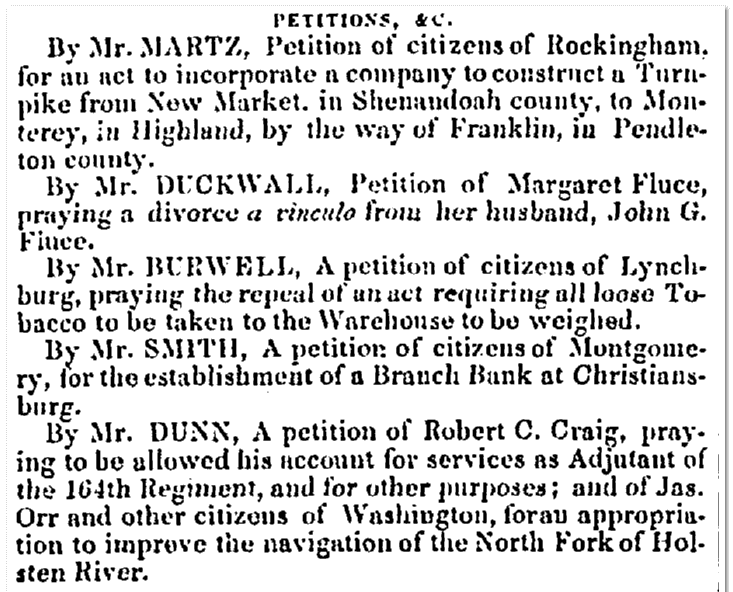
Many genealogists have not yet discovered their ancestral petitions—but in all likelihood, family historians will be able to locate them with a little digging into newspaper archives.
When our ancestors petitioned the government, a typical procedure was to have a public representative or prominent citizen present their case in front of Congress.
In this example, Mr. Wayne (i.e., General “Mad” Anthony Wayne) presented a petition “praying compensation” for Revolutionary War surgeon John Davis, who, according to The Life of John Davis (William Watts Hart Davis, 1886), served valiantly under Wayne at the Battles of Monmouth, Morristown, etc.
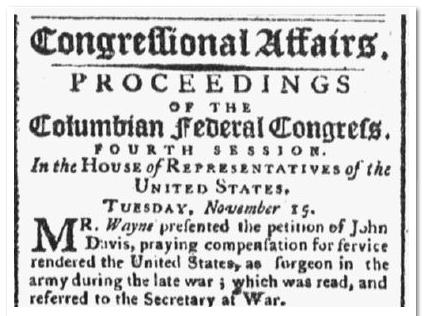
This historical newspaper article also reports on similar pleas for Revolutionary War service compensation that were referred to the Secretary of War. We can also review a variety of other requests: Philip Bush had lost a certificate, the Branch Pilots of Pennsylvania wished an increase in their fees, and Mr. Wicks prayed compensation for a vessel and cargo damaged during the late war.
Some petitioners’ names were not identified in the news articles, probably due to the publisher’s need to conserve space. To make further identification in such cases, search archives of official congressional papers.
Petition requests are valid evidence for genealogical proofs. Whether or not the petitions were granted is another story. But whatever the outcome, our ancestors’ pleas are a treasure trove of data waiting to be mined. There are so many government petitions that (in my humble opinion) this is a project waiting to be tackled.
Wouldn’t it be great to have an indexed book on petitions, divided into subtopics, such as debt relief or the Temperance movement?
The crusade against drinking sparked a number of petitions in 19th century America. For example, in 1850 a “Mr. W.” presented fifteen petitions from citizens of Massachusetts, asking that the spirit ration of the Navy be abolished.

Were these concerned Massachusetts citizens members of the group that met at Gibbs’ Hotel in Boston, where Sons of Temperance meetings were held?
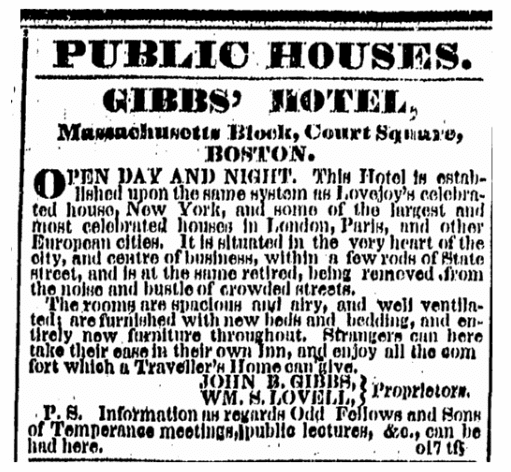
I haven’t yet completed the research, but my hunch is that Gibbs’ Hotel is where the teetotalers of the temperance petitions were meeting. My suspicion was enhanced after discovering this delightful old 1800s poem.
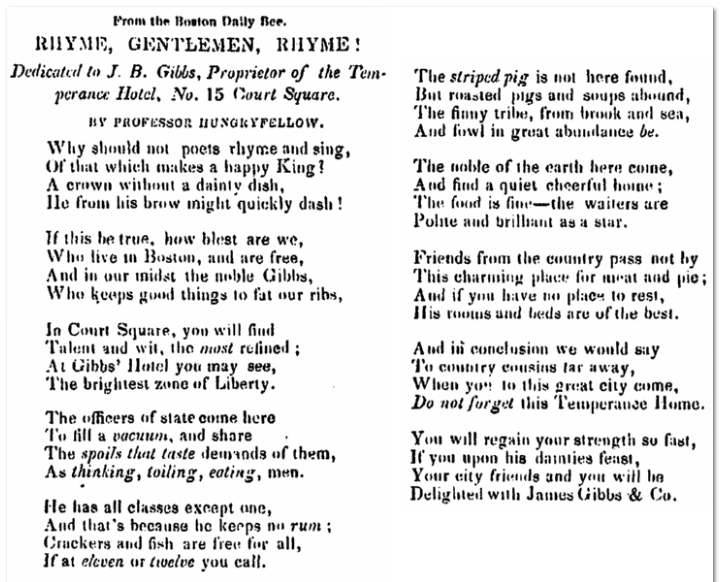
To locate petitions in GenealogyBank, search using the “Legal, Probate & Court” category in the Newspaper Archives.
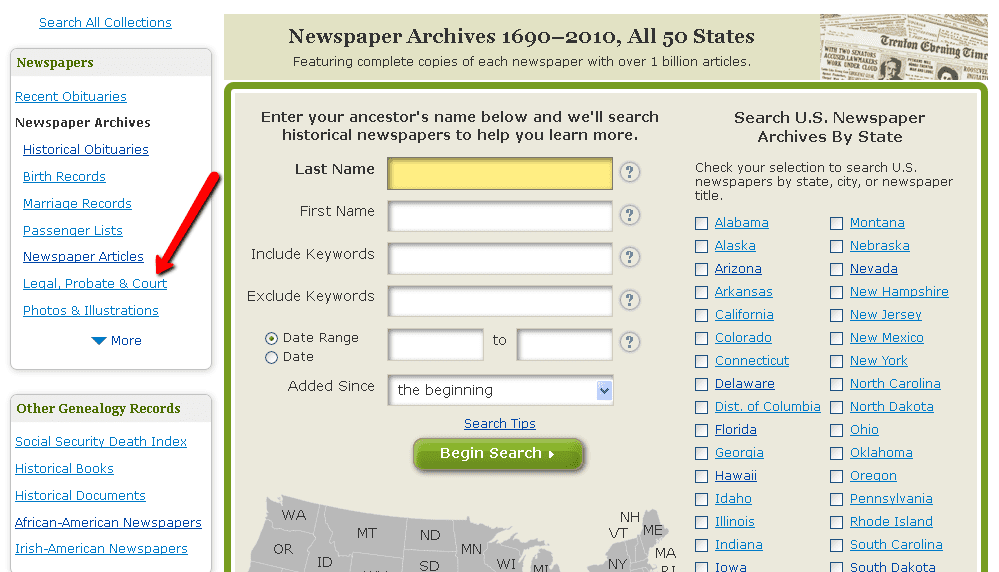
Include keywords such as pension, military or relief, along with an ancestor’s surname.
Have fun searching for petitions in GenealogyBank. Some are serious, and others are not.
Here’s an example of a petition I found in the “not so serious” category—and I see that some things never change.
This 1810 Georgia petition shows that, the same then as now, lawyers—as much as we need them—tend to infuriate us!
“We pray your honorable body to make such laws as to dispense with and totally obliterate the most useless pests that ever disgraced the human society, to wit, the lawyers, who have so successfully learnt the trade of living.”
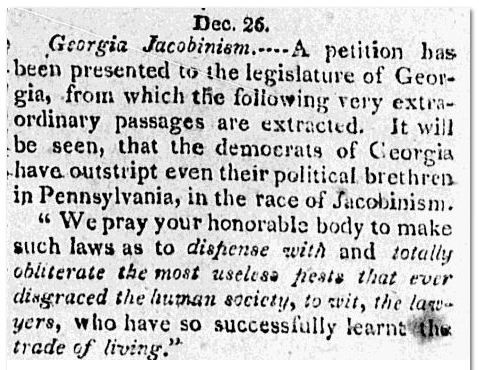
Yes, petitions in old newspapers can help us a great deal with our family history searches. And if, every now and then, one of our ancestor’s petitions manages to give us a chuckle or put a smile on our face—so much the better!
